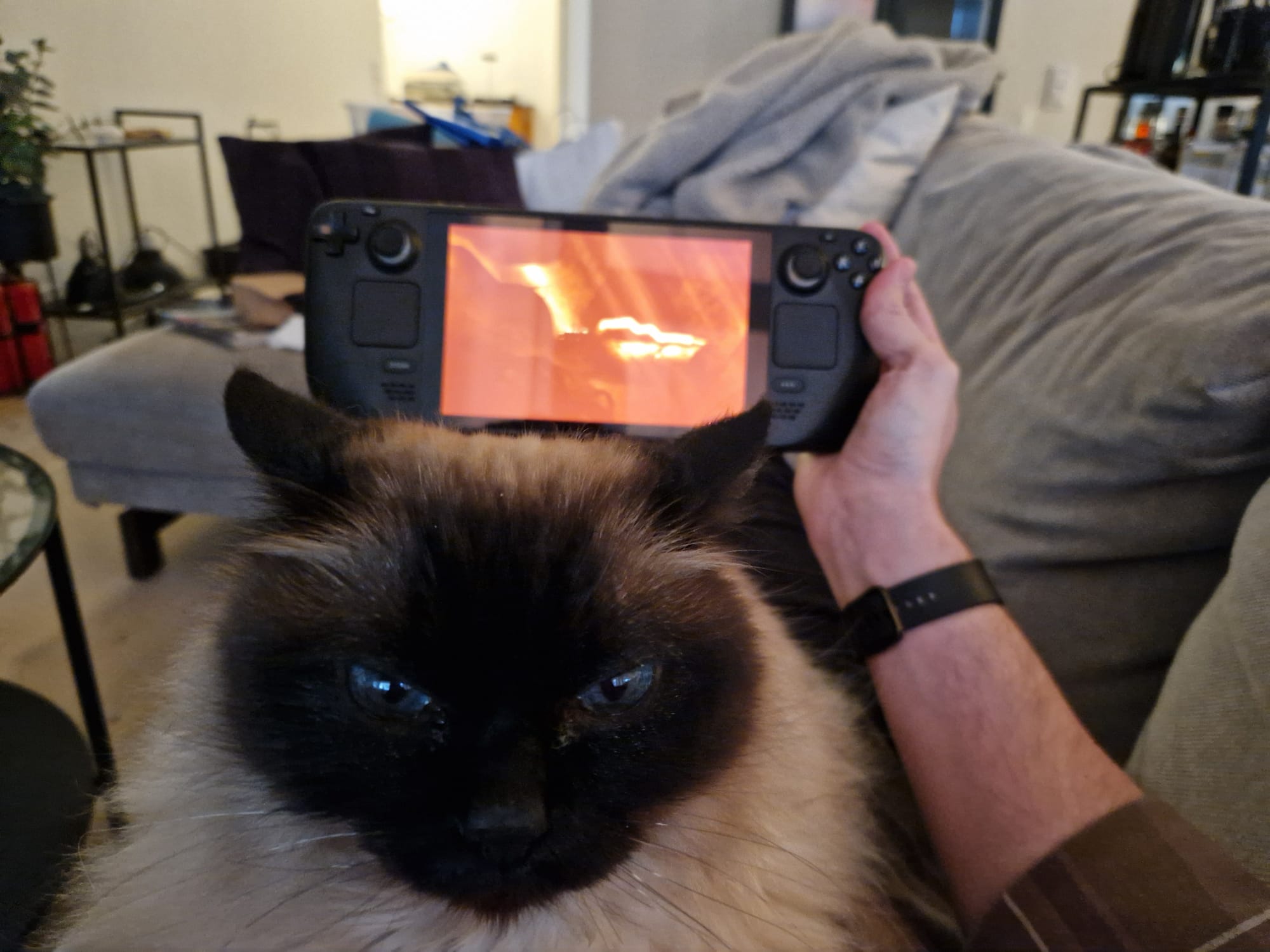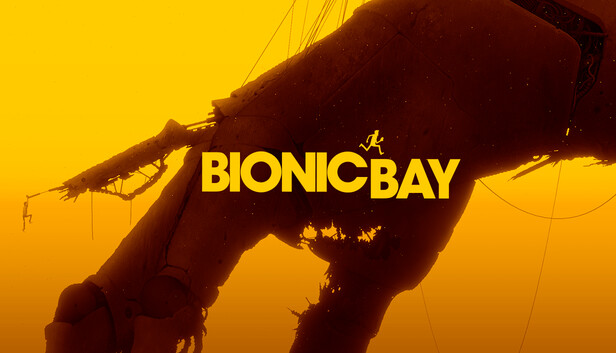What I'm Reading / Watching / Playing - April 2025

Happy Labor Day, everyone! Whether or not you're participating in demonstrations, I hope you're having a good day off—assuming, of course, that you do not work in one of the few countries in which Labor Day isn't a public holiday.
You know... like I do. Sob.
Let's get into what's been occupying my attention this month.
If you find my writing interesting, please consider subscribing to my newsletter! You'll get an email whenever I publish something new—it's completely free, and I don't have any plans to monetize anything I write, so it's just for your convenience (and to sate my monkey brain's wish to see numbers go up).
If you're not into newsletters, you could also subscribe to the RSS feed—if you don't know what that is, I wrote about how awesome they are a while back.
Reading
I've been getting into the groove of bringing my laptop on the train ride across the Øresund Bridge; the silver lining of being stuck on a train for 40 minutes with a spotty internet connection is that I get lots of time to both read and write. Combined with my ongoing project of replacing social media with RSS feeds, I've been reading a lot of good stuff, some of which will definitely be making its way into future posts.
Derek Guy - A Basic Shirt Wardrobe, Part 1 & 2
If you are somehow not already familiar with Derek Guy, he's a fashion writer primarily known for great zingers and highly informative threads on Twitter (although I believe he's now 100% on Bluesky). When he's not busy explaining why Tokyo is so fashionable (and how it ties in with the concept of walkable cities and cheap commercial spaces) or explaining why President Zelenskyy didn't wear a suit for his visit to the White House, Guy writes about fashion for various news outlets as well as his own website, Die, Workwear!
I've been trying to deepen my understanding of fashion and style for the past year or so, and so I've been reading a lot of Guy's writing; my personal "aha" fashion moment was sparked by a CJ The X video which heavily referenced Guy's series of articles on personal taste—all four parts of which are at the top of my "read later" list of articles.
Most recently, he's posted a two-parter on shirts; these are very timely for me, as I recently realized not a single one of my shirts fit me properly—and never really did—and thus donated the lot to a charity shop. Using these two posts as a reference, I'm now slowly replenishing my shirt collection, while trying to make sure everything fits me well both physically and aesthetically.
Go check him out! I guarantee you'll learn something.

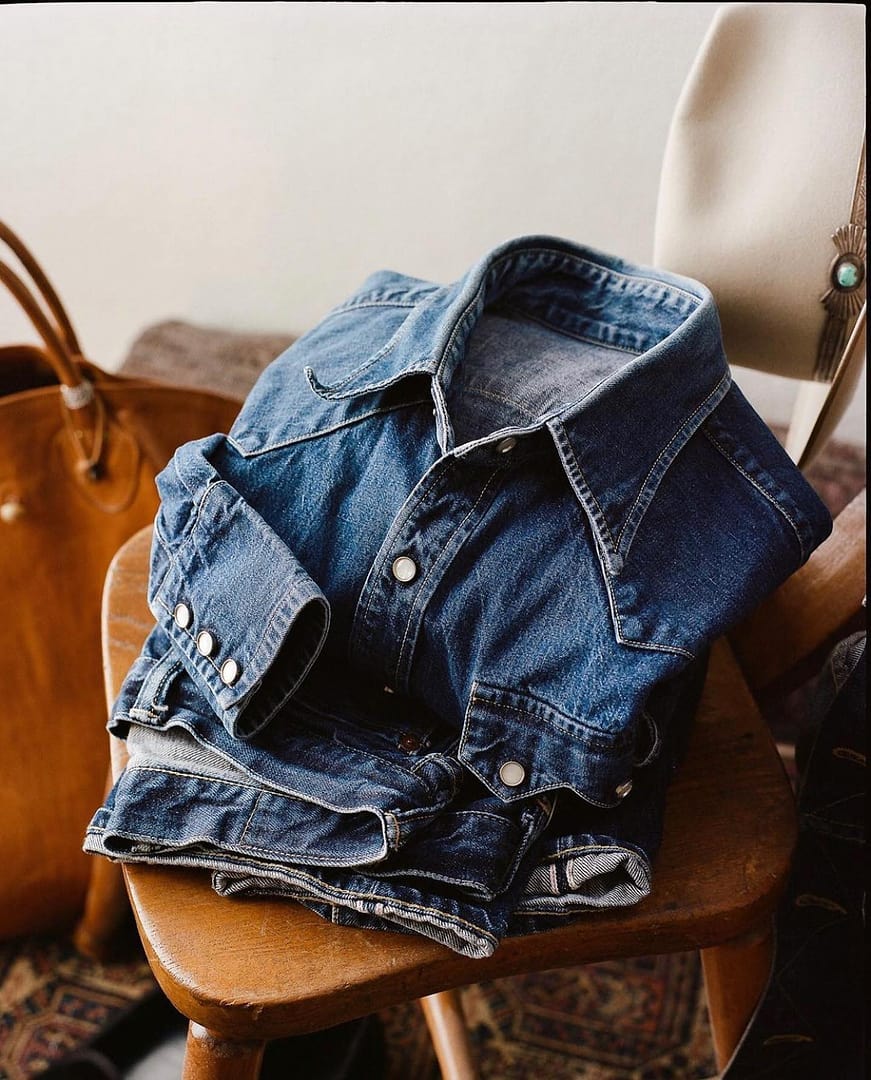
Patrik Witkowsky - Vi kan styra oss själva
I stumbled on this book by accident, but knew I had to buy it when I realized it's about worker-owned companies. This is a topic that's near and dear to my heart, and has been ever since I watched Unlearning Economics' video on worker democracy, in which he talks about the benefits of worker ownership at length. I highly recommend that one for anyone curious about this topic.
If you're more into reading—and you can read Swedish—I also highly recommend this book. If you'd like something shorter, the author also wrote a report on US Employee Stock Ownership Plans which is a mere 92 pages.
If you'd like something even shorter, I'll be writing a post on worker-ownership sometime in the not-too-distant future. I plan on getting on that as soon as I'm done writing about the 4-day workweek—oh yeah, I'm not done with that one from the last post.

Doc Burford - people always ask why games are so violent, so let’s give ’em an answer
Doc Burford is one of the most interesting writers on games and game design that I know. I don't always agree with him on things, but I have incredible respect for anyone who's capable of writing this extensively and with this much thought put into their writing. It's not an understatement to say that Doc's writing is part of what inspired me to start this website.
This post is about violence in video games. Doc begins by discussing violence in media more broadly, then digs deep into the game design surrounding violence and how it's actually really difficult to make a "non-violent" game of the kind that the people we often see decrying violent video games are calling for.
He also solves the "are games art" discourse (again), and references one of my favorite blog posts about game design by Thomas Grip of Frictional Games.
I wrote about 400 words of notes while reading Doc's post, but you should just go read it. I don't think you'll regret it.
While you're there, considering dropping Doc a tip (or joining his Patreon).

Aftermath - ‘An Overwhelmingly Negative And Demoralizing Force’: What It’s Like Working For A Company That’s Forcing AI On Its Developers
Last month, I linked to two posts talking about how AI was both sucking the joy of out of development work and making developers unhirable. The good folks over at Aftermath have gone much further, speaking to developers who are pressured to use AI in their jobs and asking them how it affected their work.
It's... a pretty depressing read, to be honest. I feel bad for the people in the article, and grateful that I work at a company that hasn't bought into the AI hype. Fingers crossed this ridiculous bubble pops sooner rather than later; until then, the best way developers can fight this nonsense is to unionize and collectively put pressure on their employers to stop forcing AI down their throats. Godspeed.
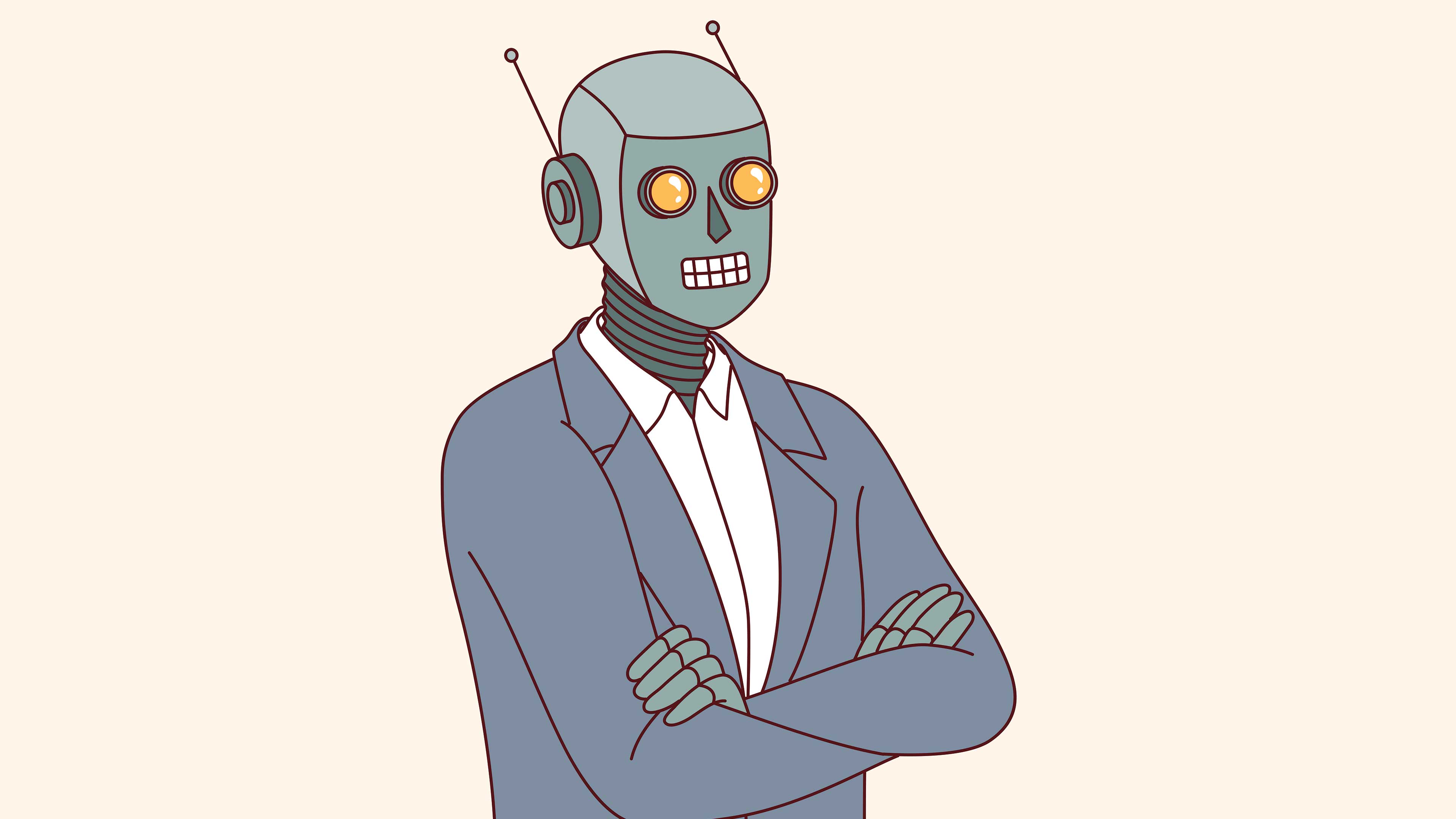
Aftermath - Games Media Can’t Ignore BDS Xbox Boycott
Look, there's a lot of good writing coming out of Aftermath, okay? I had to stop myself from also writing about Chris Person's article on split keyboards (although you should totally go read that) in this post.
This one is about the BDS boycott of Xbox. If you don't know what that means (I hadn't heard about it before this article), then that's exactly the point of this article. You should go read it, in particular if you care about Israel's ongoing genocide in Palestine. It's great writing throughout, and Autumn Wright's manifesto in the final part is full of introspection and vulnerability.
We need more journalism like this. I'm so happy Aftermath exists.

Watching
These next two parts are shorter, I promise. YouTube has mostly been a way for me to unwind from all the very serious reading—I didn't even mention the socioeconomic reports from Swedish Enterprise that I'm reading for the 4-day week post—so there hasn't been that much worth mentioning here.
Gary Stevenson - Gary's Economics
Gary Stevenson is a UK economist and former trader at Citibank who quit his job to educate people about how inequality is growing in the UK and other countries. His videos are short—at least in comparison to my other favorite economics YouTuber—and highly informative, and he just wrapped up his latest "season" before going on break for a bit. I was stoked to see him talk with Ha-Joon Chang, one of my favorite economists; I would recommend his book Economics: The User's Guide for anyone who feels intimidated by economics, but wants to know more about it.
Watching Gary's videos, I wish we had a Swedish equivalent; someone who can explain complex things in an understandable way while shining a spotlight on the problem at the core of so many issues that have led to the rise of the far right in Europe.

Technology Connections - Algorithms are breaking how we think
I saw this video linked by several of the people I follow on Bluesky. It makes the argument that the prevalence of algorithm-curated feeds on the internet and social media is making people give up their agency, sacrificing their ability to find good information for effortless scrolling.
Go watch this, and then go read my post on RSS feeds if you want a decent alternative to what he's describing (I promise this is the last time I plug that post in this one).
Playing
I wasn't expecting to be playing a ton of video games this week. Then that changed, although I guess I mostly just played a ton of video game.
Blue Prince
You've probably heard of Blue Prince already; I feel like it was all everyone was talking about for a good week or so. If you haven't, it's a puzzle game where you try to navigate through an old mansion, literally creating each room as you get to it. Some people have compared it to Myst, but I never played Myst, so to me it's just scratching that Return of the Obra Dinn itch.
That's how it starts, anyway. Then you discover another layer to the whole game.
And then you discover another one.
And another one.
I can't really explain any more about this game without spoiling things. Instead, here's a timelapse all the notes I've taken in Obsidian while playing the game (I've hidden the names, so there are no spoilers):
If you're the kind of sicko that saw that and thought "oh hell yeah", then this game is definitely for you.
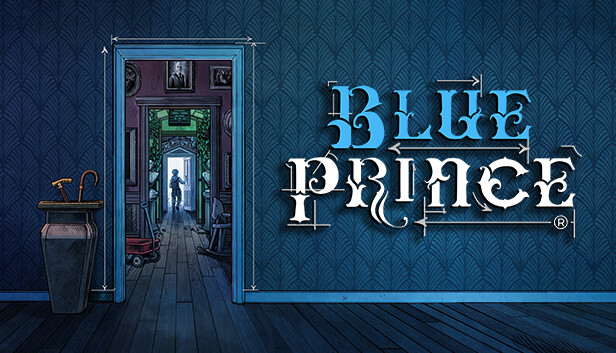
Bionic Bay
About a week ago, I realized that Blue Prince was starting to consume my every waking moment, and that I needed a break. Luckily, another game on my wishlist had recently come out!
Bionic Bay is an incredibly stylish 2D platformer that I've been keeping my eye on since I played the demo during Steam Next Fest last year. The movement is tight, the level design is challenging—and sometimes darkly funny, in a very Limbo/Inside kind of way—and the game introduces some cool mechanics (the first one lets you slap a device on an object that you can then swap places with) to bring some novelty to what is otherwise a very solid platformer.
It's all instinct and no thought; exactly what I needed to recover from my Blue Prince obsession. You should go play it.
